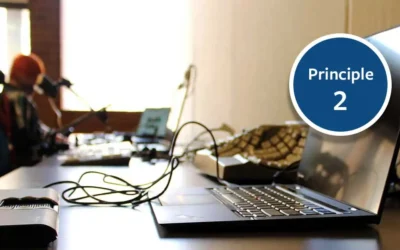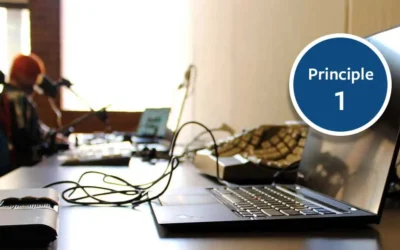How to Build the Case for Museum Job Salaries

Rachael Cristine Woody
This is the last post in our miniseries on how to build the case for museum job salaries.
If you have missed a post, please be sure to check these out so that you have instructions for how we got to each stage in building our case:
- November 1: What Resources to Consult for Museum Job Salaries
- November 8: What Information to Gather for Museum Job Salaries
- November 15: How to Accurately Calculate Museum Job Salaries
- November 22: Examples for How to Accurately Calculate Museum Job Salaries
Build the Case
Yes, the first part was gathering the data and crunching the numbers. But now we need to take our data and advocate for our value. This post offers some “Dos” and “Don’ts” to help you navigate tough but important discussions with the decision-makers at your museum.
Do
These are the items to do and have ready, and to practice regularly.
- Do gather data and calculate your value. Keep this information updated and at-hand when speaking with HR and your boss.
- Do *always* stand in your value.
- Do decide what you will or will not accept re: pay based on your value calculation.
- Do take every opportunity to point out the value you bring to the organization.
- Do track victories, metrics, and other measurables that lend evidence to your requests for better, more accurate compensation.
Don’t
These are the items to avoid, or require preparation to challenge.
- Don’t stop asking for better/accurate compensation until they pay you your worth.
- Don’t let higher ups gaslight you or offer irrelevant excuses.
- Don’t let them tell you they didn’t budget to cover inflation/cost of living without also providing a plan for how they intend to rectify it.
- Don’t self-censor, anticipate the no, or engage in other thought-patterns that don’t put you first.
- Don’t accept HR/your boss telling you what you’re worth. Their information and motives are suspect.
- Don’t let inaccurate position descriptions slide.
- Don’t let them pigeon-hole you into a pay category that isn’t accurate.
- Don’t let them change your title and responsibilities without a pay increase.
Remember
Finally, there are items to know and find comfort in. Salary advocacy is a practice and it can be frustrating to wait for change. With that in mind, here are some final things to remember:
- It’s going to take time.
- Make sure your requests are formally documented.
- You likely won’t get everything you ask for the first time you ask for it.
- Negotiate for other non-monetary benefits.
- Scale down your work to what they pay you for.
- Look for other work.
- Continue building your network and investing in yourself.
It can take time before our value is finally met and paid by the museum, but this doesn’t mean you’re not worth that much. While it’s hard to reconcile not being paid our worth, we must first start with knowing that we are worth more than we’re paid. And that we deserve to be paid what we’re worth.
Conclusion
The first step is knowing our value. You may find (as I did) that once you found out your value you became obsessed with raising everyone’s value. There are many advocacy steps you can pursue from here and the good news is it’s a “benefit all” game. The more we can advocate for our collective value, the better chance we have for being heard. This can look like paid internships, salary transparency, open budget review, union forming, and more. Finally, please share what you know. The more of us who know how to calculate and advocate for our worth, the healthier our field will be.

Rachael Cristine Woody
To learn more, please join us for a free webinar, Building the Case for Museum Job Salaries, TODAY, November 29, 2023 at 11 a.m. Pacific, 2 p.m. Eastern. (Can’t make it? Register anyway and we will send you a link to the recording and slides afterwards). Register now or call 604-278-6717.
Never miss another post. Subscribe today!
Similar Posts
Museum Collections Online with Accessibility Principle 2: Operable
Compliance with WCAG Version 2.1 Principle 2: Operable
Museum Collections Online with Accessibility Principle 1: Perceivable
Compliance with WCAG Version 2.1 Principle 1: Perceivable, affecting information published from museum CMS to an online portal; expert guidance
Accessibility Standards for Museum Collections Online
A museum’s compliance with the ADA Title II 2024 update has benefits for its online content and for the museum’s community of users.
Museum TrendsWatch 2024: Digital Twins and Doom Loops & Combatting the Loneliness Crisis
Digital Twins is the construction of a digital surrogate for a person, place, or thing—one of several new concepts and trends in the museum sector.




Leave a Comment
Comments are reviewed and must adhere to our comments policy.
0 Comments